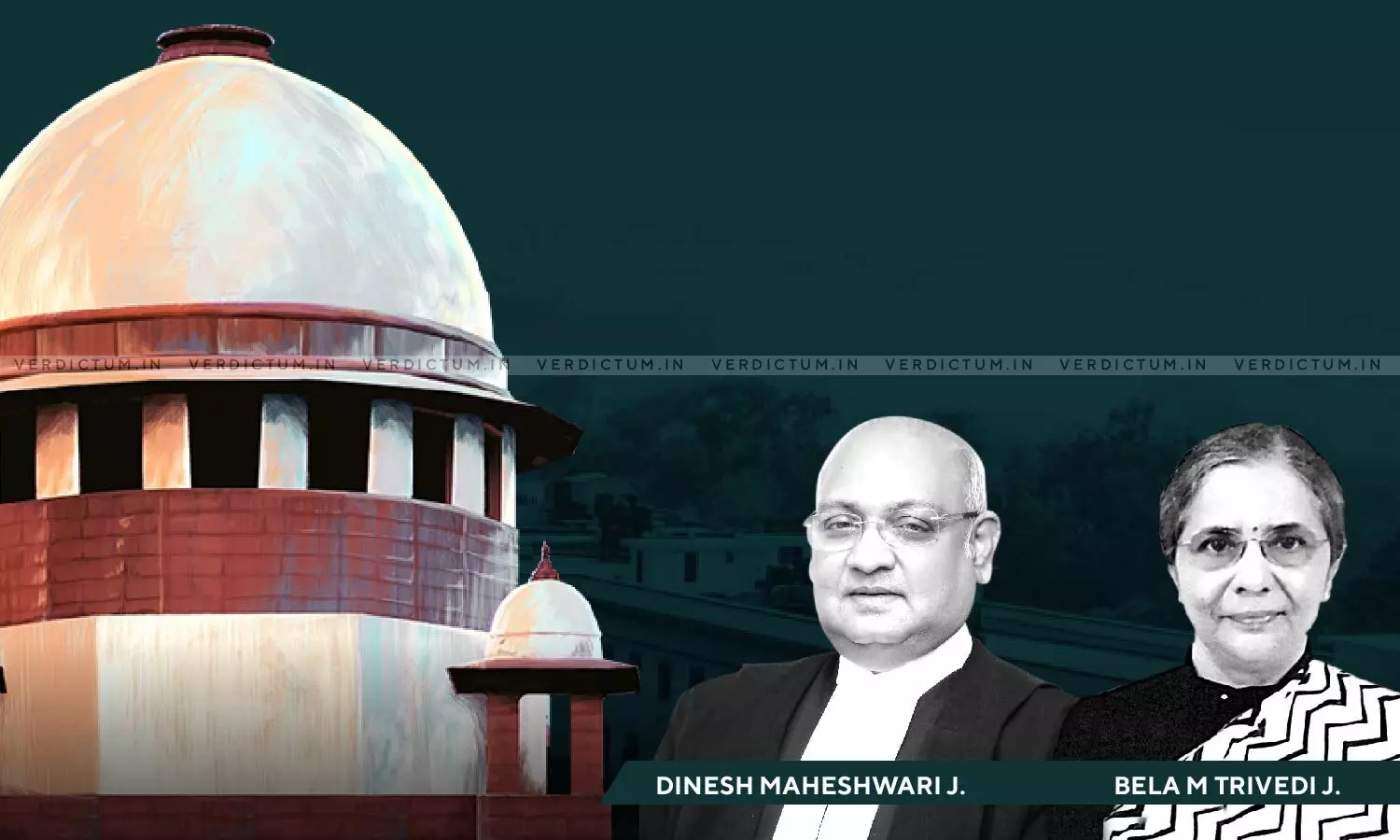
No Finality Can Be Attached To Kerala HC’s Observations Regarding Temporal & Spiritual Affairs Of Churches: SC
 |
|The Supreme Court while dismissing an appeal along with a batch of Special Leave Petitions (SLPs) has observed that no finality can be attached to the observations made by the Kerala High Court with regard to the temporal and spiritual affairs of the Churches.
The appellant being the head of Syro Malabar Church was Cardinal Mar George Alencherry (Archbishop) who had challenged the judgment passed by the Kerala High Court.
The two-Judge Bench comprising Justice Dinesh Maheshwari and Justice Bela M. Trivedi said, “It appears to us after having gone through the impugned order passed by the High Court, more particularly the observations made in para 17 to 39 thereof that the said prima facie observations were made in response to the submissions made by the learned counsels for the parties relying upon various decisions of this Court as regards the powers and authority of the Archbishop of Archdiocese with regard to the temporal and spiritual affairs of the Churches. Of course, certain observations are omnibus and general in nature but the same being only prima facie observations made in the impugned order in the petitions filed by the Appellant-Archbishop under Section 482 of Cr.PC, no finality could be attached to the said observations.”
The Bench further directed that the Trial Court shall decide the complaints filed against the appellant and others in accordance with the law without being influenced by the observations of the High Court.
Senior Advocates Sidharth Luthra and Chander Uday Singh appeared on behalf of the appellant while Senior Advocates Jaideep Gupta and Jayanth Muth Raj appeared on behalf of the respondents.
Brief Facts –
The appellant i.e., the Archbishop claimed to have an authority over all the spiritual and temporal affairs concerning Syro Malabar Church and alienated its immovable properties. The respondent claiming to be a member and believer of the Roman Catholic Church filed a complaint under Sections 190 and 200 of Cr.P.C. against three accused including the appellant alleging the commission of the offences punishable under Sections 120B, 406, 409, 418, 420, 423, 465, 467, 468 r/w 34 of IPC.
The Trial Court vide the order took the complaint on file and dismissed the same under Section 203 of Cr.P.C. so far as the 5 offences under the IPC were concerned. However, the Court issued summons against the accused for the offences under Sections 120-B, 406, 423 read with 34 of IPC. Thereafter, the Sessions Court dismissed the appellant’s criminal revision petition and then the High Court also dismissed his plea.
The Supreme Court in view of the facts and circumstances of the case noted, “… the said observations have been made by the High Court in response to the submissions made by the counsels for the parties in the light of the various decisions of this Court, and the said observations being prima facie in nature, no finality could be attached to them. … we are constrained to say something on the subsequent orders passed by the High Court after passing of the impugned order dismissing the petitions filed under Section 482 Cr.PC by the appellant.”
The Court further noted that the High Court after the dismissal of the petitions filed by the appellant invoked its Suo motu jurisdiction directing the State Government to make a detailed inquiry with regard to the execution of the sale deed and settlement deed in respect of some of the properties sold out by the appellant and find out whether the said properties belonged to the Government and whether the said settlement deed was created with the aim to manipulate a document of title over Government land.
“The High Court in its overzealous approach had travelled not only beyond the scope and ambit of Section 482 Cr.P.C and of Article 226 of the Constitution of India, but had crossed all the boundaries of judicial activism and judicial restraint by passing such orders under the guise of doing real and substantial justice”, the Court held.
The Court also held that the jurisprudential enthusiasm and wisdom for doing substantial justice have to be applied by the courts within the permissible limits and the belief of self-righteousness or smugness of the High Court in the exercise of its powers of judicial review should not overawe the other authorities discharging their statutory functions.
“We may not have to remind the High Courts that judicial restraint is a virtue, and the predilections of individual judges, howsoever well intentioned, cannot be permitted to be operated in utter disregard of the well-recognized judicial principles governing uniform application of law. Unwarranted judicial activism may cause uncertainty or confusion not only in the mind of the authorities but also in the mind of the litigants”, observed the Court.
Accordingly, the Court dismissed the appeal and quashed the order of the High Court.
Cause Title- Cardinal Mar George Alencherry v. State of Kerala & Anr.
Click here to read/download the Judgment